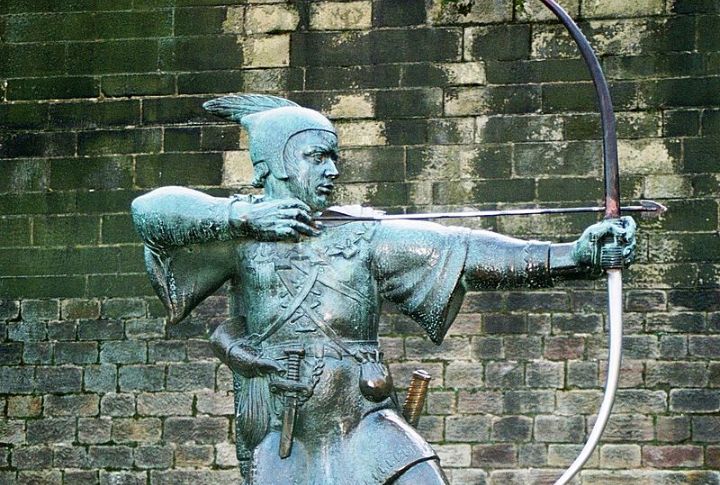
Certain historical characters feel like old friends, but appearances can be deceiving. Scholars have debated whether some were ever real at all. Legends and lore usually take on a life of their own, as they shape stories for generations. Here’s a list of ten historical personalities who might exist only in imagination.
William Tell
Legends claim William Tell once aimed an arrow at an apple perched on his son’s head. No contemporary account confirms he existed, and the earliest tales appear centuries later in the “White Book of Sarnen.” Still, his daring image continues to define Swiss national pride.
King Arthur
King Arthur is a legendary British leader whose historicity is debated. The earliest accounts emerge in medieval Welsh literature, centuries after his supposed reign. His myth includes the sword Excalibur and the Knights of the Round Table. Despite lacking evidence, the Arthurian legend continues to inspire literature and popular culture.
Sun Tzu
Nobody can prove Sun Tzu actually lived, which creates an ironic problem for history’s most famous military philosopher. Documentation linking him to “The Art of War” emerged suspiciously long after his supposed death. Multiple anonymous contributors likely shaped what came to be attributed to one legendary name.
Betty Crocker
Corporate America’s most trusted homemaker never baked a single cake. Washburn Crosby Company fabricated Betty Crocker in 1921 as a pure branding strategy before General Mills assumed control. Multiple employees contributed handwriting elements for her signature, and her visual identity underwent systematic makeovers tracking American cultural shifts across decades.
Robin Hood

Robin Hood is a legendary English outlaw known for “giving to the poor by robbing from the rich.” The earliest ballads about him date from the 14th and 15th centuries, long after the supposed events. Characters like Maid Marian were later additions, and no definitive historical evidence confirms his existence, yet his tale endures globally.
Homer
Scholars call it the “Homeric Question” because nobody knows if one poet actually created the “Iliad” and the “Odyssey”. Evidence points both ways. Anonymous voices might have crafted these epics over generations. Greeks insisted their legendary bard was blind and invented biographical details for someone who may never have existed.
John Henry
Stories recount John Henry racing a steam drill and exerting unmatched effort until his collapse. No contemporary records confirm his life, which leaves historians skeptical. Folk traditions, however, continue celebrating his feats, demonstrating how legends endure, shape cultural identity, and remind us that some heroes may exist only in the imagination.
Mulan
The legendary warrior from “The Ballad of Mulan” may never have existed at all. The poem, written during China’s Northern Wei dynasty, contains no verifiable evidence of a real person. Many historians view Mulan as a cultural symbol—a composite of women who defied tradition—rather than a single historical figure who served in battle.
Uncle Sam
Samuel Wilson might have inspired America’s most famous personification, or maybe that’s just convenient folklore. Uncle Sam’s stern expression and patriotic top hat became recruitment gold during WWI, despite his murky origins. Evidence connecting him to any real individual simply doesn’t exist in historical records.
Pythagoras
As an ancient Greek philosopher and mathematician, Pythagoras is shrouded in legend. No contemporary writings survive, and much about him was recorded centuries later. The Pythagorean theorem bears his name, although knowledge of it predates him. He also founded a religious movement with strict rules that included dietary restrictions, blending science, philosophy, and spirituality.

